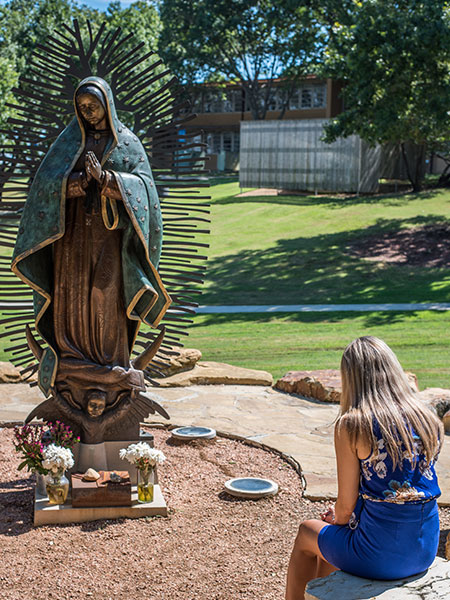Three traits young people crave from the Church
This fall, bishops from every corner of the globe will gather in Rome to discuss the Church's ministry to youth and young adults. Pope Francis has called on the leadership of the Church not simply to talk about young people but to listen directly to them. From my own ministerial experience, I would highlight three traits that young people desperately crave from the Church.
Authenticity: Young people have access to more information than our ancestors dreamed possible. We are inundated by ceaseless digital interactions and immersed in a sea of competing ideas. We are bombarded by fake news and pressured to believe that the friends and celebrities we follow on Instagram truly are living their best life 24/7.
We don't know what's real. We don't know whether a given politician really made that terrible remark or whether it's political opponents taking words out of context to score points on cable news. We don't know whether the Snapchats from a classmate requesting risque pictures mean that he's really interested or whether he just wants to view nudes.

And we hunger for a church that can name explicitly these precise, practical things we're experiencing, while guiding us through a spiritual discernment of what it all means.
We are allergic to artificiality, and too often, adults in the Church are projecting an impossibly pious exterior that young people often know isn't honest — and if it were, they wouldn't be able to live up to it, anyway. As a cohort, young Americans are congenitally cynical, and it's a near-universal truth that young people want adults to be real with them instead of posturing.
Charity: As is being ubiquitously discussed, our civilization is descending into a toxic polarization and reflexive tribalism that makes vulnerable, loving encounters a rarity rather than the norm. Today's young people have grown up listening to partisan pundits shouting past one another on TV and having the option to unfriend, unfollow, or block anyone whose opinion they don't share.
Bullying follows us around to a degree unimaginable to our parents, with peers able to harass others in the middle of the night from the safety of anonymous online accounts.
At the same time, we show up to church, craving to hear that, contrary to what this cacophony of critical voices insists, we are lovable, and we are loved. But far too often the message that's broadcast is a list of sins we had better be avoiding, lest we condemn ourselves to eternal damnation.
We want to know we are loved, right now, as we are. And that our elders in the church love us enough to not leave us there but to challenge us to become the version of ourselves God made us to be.
Humility: We want to experience a church that is human as well as divine. We want to hear leaders candidly confess the immeasurable damage that has been inflicted on the faithful as part of the clergy abuse scandal and the immense hurt pervasively experienced by LGBT persons in the Church. We want youth ministers who aren't afraid to say, "I don't know," and bishops who can acknowledge, "We got that one wrong."
Amid a societal din of strident self-assuredness and inflexible orthodoxies, young people want the Church to approach them with gentleness, acceptance, and a belief that those under 30 themselves have something to teach the Church and that the transmission of truth is not merely a unidirectional transfer from pulpit to pew.
Instead of leaping immediately from hearing about a teenager's relationship woes or struggle with substance use to issuing advice or admonishment, we who represent the Church can practice the art of accompaniment.
To use phrases like, "I hear you," and "Wow, that sounds awful," and "So what can I do to help?" We can greet their vulnerability — perhaps the most precious gift a young person can share — with patient ears, loving eyes and a merciful embrace.
There's no magic bullet to bring young people back to the Church or to ensure that those in our congregations and classrooms are having an experience of faith that will keep them committed for life. There's no single DVD series, Catholic motivational speaker or youth rally that will guarantee their participation, much less a genuine encounter with Jesus.
Rather, it is on each of us, baptized believers, to be Christ to one another — to model, in every interaction with young people, the authenticity, charity, and humility that has defined so many holy men and women down through the centuries, most of whose names are lost to history but whose impact on individuals can never fully be calculated.
By Michael Bayer, Catholic News Service
